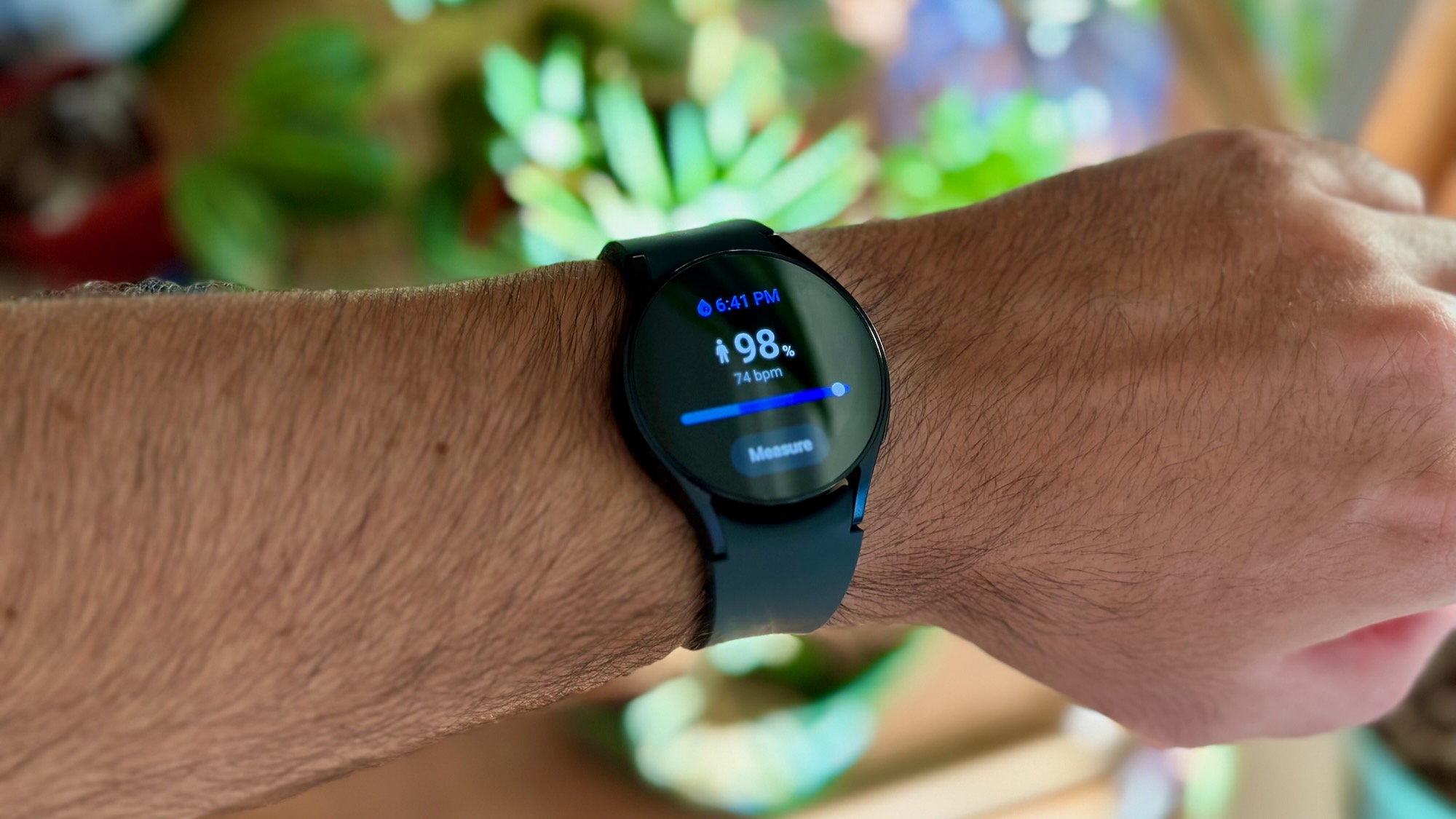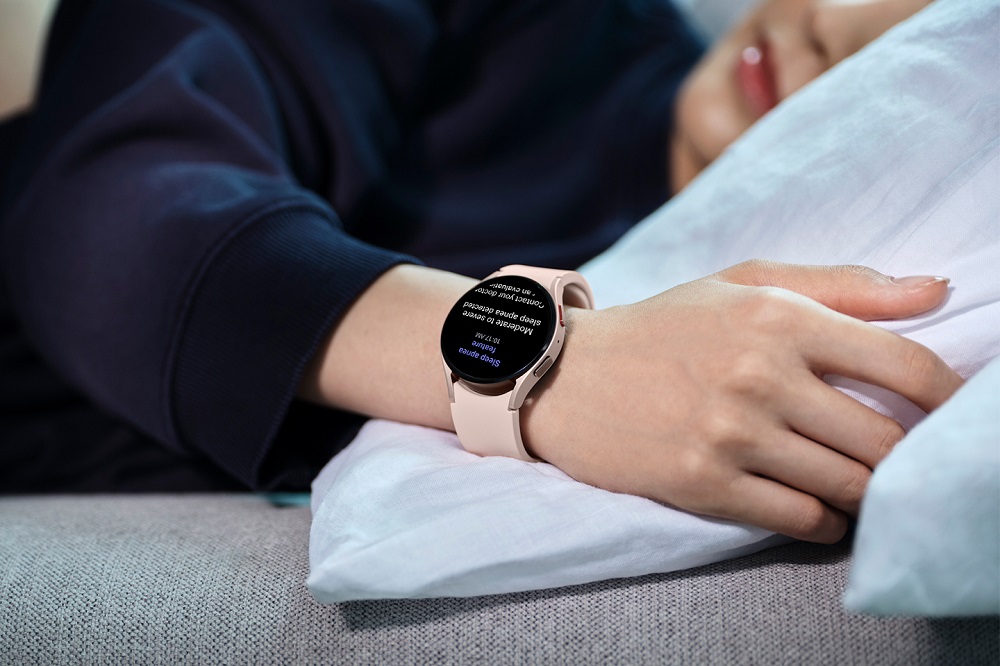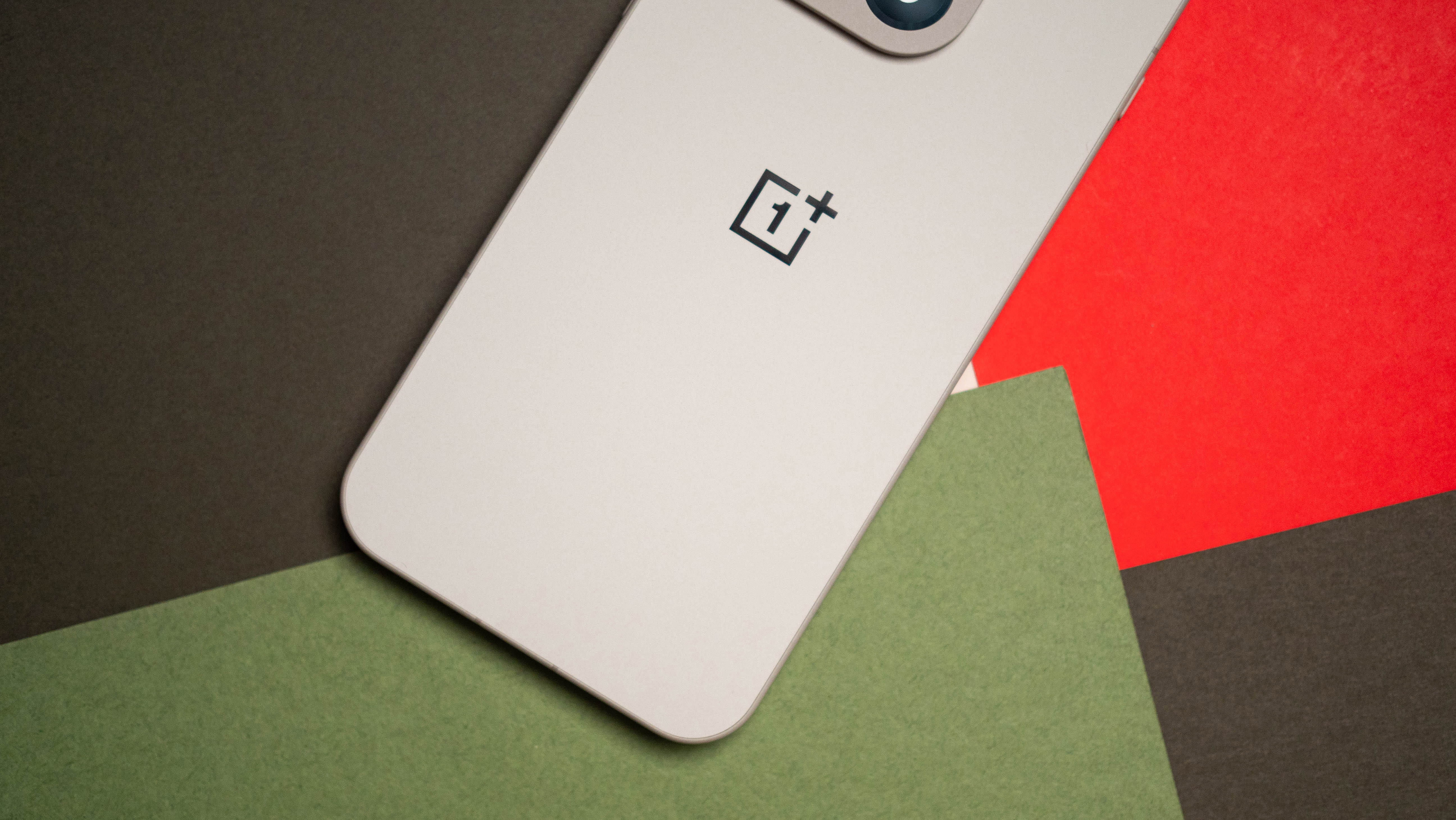Samsung has Apple's 'pathbreaking' blood pressure tech already, but it may not matter
Allegedly, the next Apple Watch will have blood pressure monitoring and sleep apnea detection, with blood glucose to follow.

What you need to know
- Bloomberg's Mark Gurman claims Apple plans to add blood pressure monitoring and sleep apnea detection to its next smartwatch.
- The Apple Watch Series 10 would detect if your blood pressure is "trending upward" but wouldn't provide exact numbers.
- Samsung first added blood pressure monitoring to the Galaxy Watch 3 but doesn't have FDA approval for it in the United States.
- The Galaxy Watch 6 announced sleep apnea detection will come to South Korean Galaxy Watches in early 2024.
Apple could add "pathbreaking" blood pressure monitoring and sleep apnea detection to the Apple Watch Series 10, according to a recent Bloomberg report. Contrary to this framing, Samsung already has similar — and possibly more reliable — technology in its Galaxy Watches.
Unlike many "new" Apple features that Android did first, however, Samsung has left the door open for Apple to make that claim by failing to roll out its blood pressure monitoring tech worldwide.
According to the Bloomberg report (via Macrumors), the next Apple Watch will "tell a user if their blood pressure is trending upward and to offer a journal for the user to jot down what was happening when hypertension occurred." You'd then be encouraged to take an actual blood pressure reading with a medical device or make a doctor's appointment.
Gurman's report says that Apple has a more accurate system in the works that can provide exact systolic and diastolic numbers, but that it "remain[s] far off."
Meanwhile, Samsung's blood pressure monitoring has you take three readings using a traditional cuff while simultaneously taking readings on your Galaxy Watch 6; you then input your medical-grade results in the Health Monitor app.
At that point, in theory, the watch knows enough to interpret its readings the same way a medical machine would and provides blood pressure data when you don't have your machine on hand. It actually gives you a blood pressure score, not just a general trend. In that way, it could be more useful than Apple's rumored tech, but also has to hit a higher standard of accuracy. And that could be its problem.
Samsung has offered blood pressure monitoring since the days of the Galaxy Watch Active 2 and Watch 3. U.S. Galaxy Watch owners can't access it because it doesn't have FDA approval to market it as medically accurate.
Get the latest news from Android Central, your trusted companion in the world of Android
Samsung, the second-largest wearable brand in the world, has had several generations of watches to improve this tech and make it accurate enough for the FDA but hasn't done so. We have no idea if the Galaxy Watch 7 will change in this area, either, or if Samsung can't make it more accurate with current technology.
Similarly, Samsung announced this October that it had received approval from South Korea's Ministry of Food and Drug Safety for sleep apnea detection, rolling out "early next year" to Galaxy Watches in South Korea. But the press release has no timetable for other regions.

Logically, if Samsung can't release these updates in the U.S. without FDA approval, that either means Apple fully intends to get FDA approval or that it will make blood pressure monitoring and/or sleep apnea detection available regardless, with the caveat that they're not medically accurate.
Either way, Apple can say truthfully that the Apple Watch is the first device to monitor for high blood pressure and sleep apnea globally, so long as Samsung leaves the door open.
It's the natural progression of Apple framing its devices as life-saving technology, with their SOS features, crash detection, AFib detection, and so on. Catching hypertension and sleep apnea falls right into that marketing strategy.
Rounding out the report, Apple allegedly has plans to add "non-invasive blood glucose monitoring" to Apple Watches in the future, but it'll be "at least a few years" before the technology is ready. Samsung itself partnered with MIT to develop "non-invasive" diabetes testing back in 2020 but has yet to add the feature to an actual Galaxy Watch. We'll have to wait and see if Samsung is ahead of Apple on this front, or if it too needs more time.
Among other reasons, Galaxy Watches usually top lists of the best Android watches because of their robust health sensors. But now that Apple Watches and the Pixel Watch 2 offer similar health data, Samsung's only "exclusive" tricks are blood pressure and body composition. Now, with Apple allegedly doing its best to catch up or surpass Samsung, that leaves Samsung with a lot to prove with the Galaxy Watch 7.

Michael is Android Central's resident expert on wearables and fitness. Before joining Android Central, he freelanced for years at Techradar, Wareable, Windows Central, and Digital Trends. Channeling his love of running, he established himself as an expert on fitness watches, testing and reviewing models from Garmin, Fitbit, Samsung, Apple, COROS, Polar, Amazfit, Suunto, and more.

